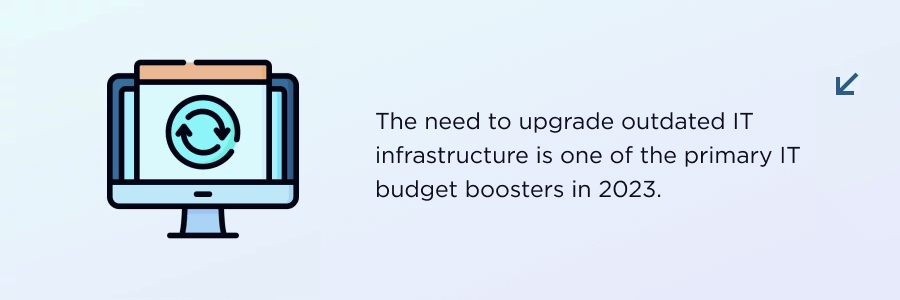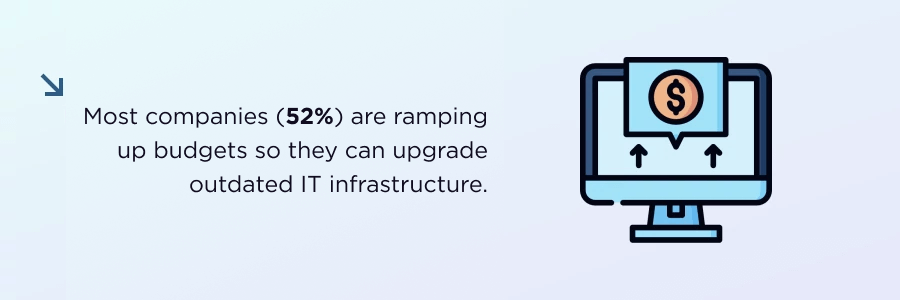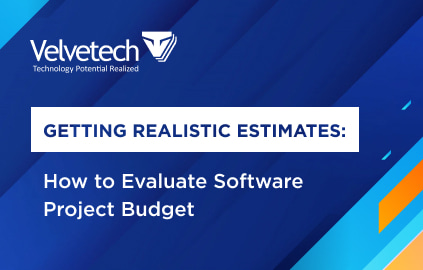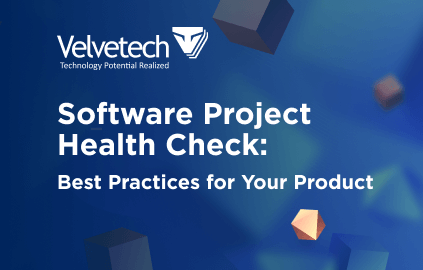There is so much hype about enterprise software systems from legacy software companies. Some of these companies are very famous house old names. They engage in project business models that cost clients a lot but deliver little in return.
Clients are consoled with a false pretense that they have the exact enterprise software solution needed for growth and expansion. The clients are also made to believe they are big market players and need the biggest solution from top software companies.
A Quick Observation for Clients
There are so many issues that fault most legacy software. There is a high cost for purchasing and operating legacy solutions. It takes a lot of time interval to implement them, yet they are challenging to use.

Another fact for thought is that the advancements in IT technology tools are supposed to make software cheaper, faster, and more useful. However, it’s on the contrary in the case of some legacy enterprise systems.
The size of your company is not directly proportional to the needed size of technology or its cost. Most of the so-called legacy software cost a lot running into millions sometimes, and yet you still need to adjust your business structure to meet the requirements of the solution.
It doesn’t end there, you still spend some more to integrate this software with your initial software infrastructure and train your staff. The yarn goes on and on leading to more consultations and more expenditure.
For that reason, no matter how small or large the business is, custom enterprise solutions can be well-fitted into the existing ecosystem since mobility is one of their core properties.
Signs to Migrate from Legacy Solutions
If your enterprise software solution has any of these characteristics, then it’s time to migrate.
- Limitations in applicable tasks
- Poor performance
- Irreconcilable technologies
- The need to stay competitive
- Absence of internal and external support
- Poor UI/UX
- Lack of mobility
Project Estimates
Watch our webinar to learn about the practical ways to evaluate your software project estimates.
It’s Time to Do Away with Your Legacy Solutions
Businesses are migrating away from legacy enterprise software tools to better alternatives. The advantages seem to be obvious having considered some of the reasons mentioned earlier.

There are some trends enhancing the sphere of business technology. You can choose from several profitable alternatives to legacy solutions. They offer strategic capabilities and take a shorter implementation time.
On top of that, most of them surely address the needs of today’s businesses to be flexible — mobile enterprise solutions help many companies achieve greater mobility and adjust to the pace of the modern world.
Reasons to Move On From Legacy Enterprise Systems
Below are reasons why you should change from your legacy enterprise solutions.
1. The consumerization of the enterprise
Recent times have led the path for the consumerization of enterprise-grade software. This is unlike a few decades ago when only a few companies could afford enterprise tech tools. Then computing solutions were channeled to resolving challenges of business productivity without special consideration for end-user adoption and experience. Today, due to the low cost of digital technology, most enterprises adopt more practical solutions for end-users.
The consumerization of enterprise technology has brought about the following:
Easy-to-use solutions – There is a more intuitive experience while using apps with no need for training or manuals. This is achievable by adopting simple UI/UX and the use of prompts as part of the application design.
Operating from anywhere at any time – Most applications are mobile and yet work with accuracy to a task from anywhere. Depending on the user target, an enterprise software solution supporting mobile devices could be the first consideration.
Next is the cloud. With cloud architecture, there can be no downtime for maintenance, and enterprise apps can be used from anywhere.
Personalized applications – Modern users are faced with smart applications that can learn about user preferences and behavior patterns. With artificial intelligence and machine learning, applications can assist the user in getting productive results.
A community of users – Enterprise solutions are integrated with a sense of community. This enables the professionals within and outside the workplace to form a network structure for communication and sharing ideas.
Multiple modalities – To engage modern employees, enterprise applications provide several interaction modalities like speech-to-text and vice-versa. Voice activation for simple tasks like reading a mail or setting up a meeting can also be useful.
Speed, Agility, and Adaptability – Enterprise applications are readily responsive and carry out tasks speedily. They are designed to fit consumer scale with responsiveness and accessibility from different devices or networks in real-time.
Apps are liable to frequent changes. The use of agile methods in the software development process makes it easy to adapt to user trends and pressing needs. Agility enables fast and seamless changes and upgrades of software apps. It constantly improves the app, making it adaptable to meet expectations.
2. No need for CIO
These days, there has been a decline in the need for CIO as suggested by a Harvard review. CIOs are gradually becoming a thing of the past. Funds for projects are directed towards technology for back-office IT other than the CIO. This is due to the growing risk of a global slowdown in the economy with the hope of cutting operating costs.
“Quite a few senior IT professionals understand it. It’s hard for them to get out in front of it. The cloud tells the business they can have production-ready tech at their fingertips without having to go through the CIO.″
— Peter Bendor-Samuel
CEO, Everest Group
By 2027, almost two-thirds of global tech purchases, around $3 trillion, are expected to go to the back office for support systems primarily powered by the cloud, according to Forrester.
3. The uprising of SaaS
SaaS, on-demand software as we know it, is now becoming preferable to the traditional model of standard software installations. There is no need to build a server, do an application installation, or even configuration. Everything is delivered to the user over the Internet, making the client good to go with no delays.
Advantages of SaaS include:
Predictable cost – Your SaaS provider is responsible for the IT infrastructure that controls the software. This means you as a business owner will not spend on hardware infrastructure and software maintenance.
Easy setup and deployment – SaaS applications are installed and configured in the cloud. This eliminates the usual faults and delays experienced from the lengthy traditional software deployment.
Easy upgrades – Your SaaS providers handle the hardware and software updates; upgrades are centrally deployed to the hosted applications.
Accessibility – With a browser and an internet connection, you can access a SaaS application anywhere. The internet is usually available on a wide range of communication devices, making SaaS more advantageous than regular software.
Scalability – Your SaaS provider can offer you alternatives for the subscription. The options and flexibility to change as the need may be. Also, there is room for scalability as your business grows, thus increasing the number of users or functions.
Customization and Interoperability – Some SaaS have special product characteristic that enables interfacing with other software with little or no restrictions. This helps companies integrate other solutions with SaaS and have a superior business solution. Mostly with the help of software development vendors experienced with this SaaS or platform.
Project Health Check
Learn the actionable steps to keep your software project on the right track, aligned with your initial goals and designated priorities.
Moving Away from Legacy Enterprise Systems: Line of Action
There is no need for you as a business owner to spend a lot on software budget, staff strength, and technology infrastructure and still have the fear of the infrastructure failing or the software solution being ineffective.
There is a new phase of business operation with more attention to core competence. Conveniently, you can do away with the high budget related to legacy enterprise solutions. If you have been incurring a lot of expenses in the past from legacy software vendors, it’s time to come over to the other side.
Velvetech provides custom enterprise software development services covering a vast range of software solutions. Our partners and clients are business owners from different sectors. We have shown a strong capacity to deliver as a trusted IT consulting and software development vendor.
Our specialists would be happy to discuss your enterprise software challenges and come up with the most appropriate solution, ensuring the highest level of security and flexibility for your IT ecosystem. Contact us today for a consultation.
































